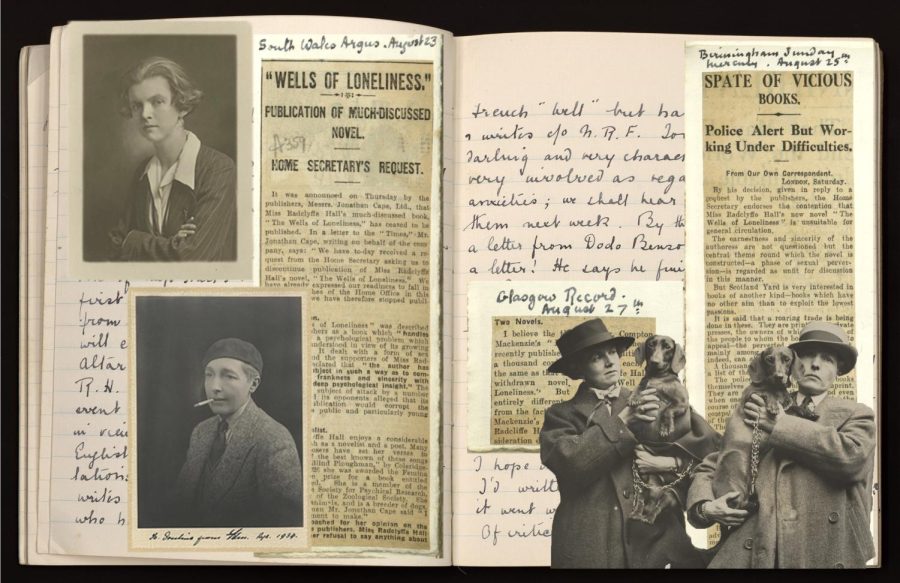Harry Ransom Center digitizes historical LGBTQIA+ writing, artwork
March 7, 2022
Researchers at the Harry Ransom Center digitized more than 60,000 items from LGBTQIA+ author Radclyffe Hall and artist Una Vincenzo, Lady Troubridge from the earlier half of the 20th century. The Hall-Troubridge collection went online Feb. 17, accompanied by a teaching guide on the professional and personal partners’ work.
The archive is made up of books, manuscripts, photographs and diaries. The collection includes Hall’s novel, The Well of Loneliness, which was banned in England due to the controversy of lesbianism during that time. The Hall-Troubridge papers show the impact of censorship on gender identity, lesbianism and sexuality, according to principal investigator Jim Kuhn.
Alejandra Martinez, the Hall-Troubridge online archive project librarian, handled the digitization of the collection and said she found studying the lives of Hall and Troubridge intriguing, especially because they were people in privileged positions.
“When it comes to telling the stories of queer historical figures, there’s sometimes not a lot of room for nuance,” Martinez said. “While we were digitizing this collection and making it publicly accessible, we really wanted to show that these are full, complicated people who did not always make the best choices or had the greatest attitude about things.”
Martinez said the collection is rewarding because she is able to provide a full scope of queer literary history to researchers and anybody who is interested.
“Just knowing that that information is going to be accessible and usable by so many different people is encouraging,” Martinez said.
Kuhn said the Harry Ransom Center began the digitizing process in October 2019. He said the center purchased the Hall-Troubridge papers because Harry Ransom was interested in collecting manuscripts that might have never been intended for publication.
Kuhn said there is a lot of historical material about queer people, but a good portion of the art and literature they have created has been lost. He said saving and sharing this collection can better help understand the history of the queer community.
“It was also important to us to create a teaching collection that would enable instructors to share primary sources of materials with their classes in queer history, in the history of the modernist literature movement [and] in the history of censorship,” Kuhn said.
Coyote Shook, education and outreach coordinator for the collection, said they created the teaching guides on the Hall-Troubridge collection that would be digital and public facing.
“My responsibility was to create a teaching guide … that would invite people from a range of different levels … to think critically,” said Shook, an American studies doctoral candidate. “About not only [the] social history of what was going on, but also literary history and literary movements and things like that — really putting the digitized papers from the collection in conversation with other authors from the time.”
Shook said they encourage anyone with an interest in literary movements to check out the collection and the teaching guide.
“I would just say that I’m very proud of the work that we did to create a teaching guide that focuses on queer history more holistically that doesn’t prioritize the narratives and papers of a certain group or class or nationality,” Shook said. “The conversations that we’ve seen coming out of the teaching guide already have been exciting.”



